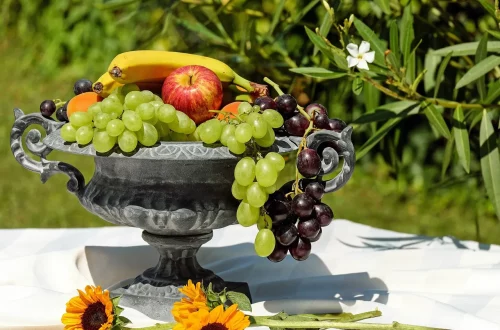
Do Goats Eat Celery? Exploring Their Dietary Preferences
Goats are fascinating creatures known for their curious nature and diverse dietary habits. Typically associated with rugged terrains and farms, these animals have a reputation for being somewhat indiscriminate eaters. Their diet can encompass a wide range of vegetation, from grasses and shrubs to fruits and vegetables. Understanding what goats eat is essential for anyone looking to keep them as pets or livestock, as a proper diet is crucial for their health and well-being.
One food item that often raises questions among goat owners is celery. Is it a suitable snack for these animals, or should it be avoided? Goats are known to have unique taste preferences, often gravitating toward certain foods while showing little interest in others. This leads to an array of queries regarding their dietary choices, which can significantly impact their overall health.
In this exploration, we will delve deeper into the dietary preferences of goats, examining their ability to consume various food items, including celery. Understanding the nutritional needs and preferences of goats can help ensure they thrive in their environment, leading to happier and healthier lives.
Understanding Goat Dietary Needs
Goats are ruminant animals, which means they have a specialized digestive system designed to process fibrous plant material. Their stomachs contain four compartments: the rumen, reticulum, omasum, and abomasum. This complex system allows them to break down tough plant fibers efficiently. Consequently, goats require a diet that is rich in roughage, primarily consisting of hay, pasture grasses, and browse (the leaves and twigs of shrubs and trees).
In addition to fibrous materials, goats need a balanced intake of nutrients, including proteins, carbohydrates, fats, vitamins, and minerals. The ideal diet for goats primarily includes high-quality hay, fresh pasture, and a variety of other feed options to ensure they receive all the necessary nutrients. It’s also essential to consider the age, size, and health status of the goat when determining its dietary needs.
While goats are known for their ability to eat almost anything, not all foods are equally beneficial. Some foods can be toxic or harmful to goats, while others may be more suitable as occasional treats. Fruits and vegetables can be introduced into their diet, but moderation is key.
Celery, for instance, is low in calories and contains some beneficial nutrients like vitamins A, C, and K, as well as dietary fiber. However, due to its high water content and low nutritional density compared to other forage options, it should not serve as a staple in their diet. Instead, it can be offered as an occasional snack, especially during warmer months when goats might appreciate the hydration it provides.
Can Goats Eat Celery? Nutritional Insights
Celery is a vegetable that many people enjoy for its crisp texture and refreshing taste. For goats, incorporating celery into their diet can be a delightful treat, but it’s essential to understand the nutritional components and how they align with a goat’s dietary needs.
Celery is composed mainly of water, making it hydrating and low in calories. It contains vitamins like vitamin K, which is vital for blood clotting and bone health, and vitamin C, an antioxidant that supports the immune system. Additionally, celery provides dietary fiber, which is beneficial for digestive health.
However, the question arises: how much celery can goats safely consume? While goats can eat celery, it should be offered in moderation. Too much celery may lead to digestive upset due to its high water content, which can disrupt the balance of their diet.
It’s also important to prepare celery properly before offering it to goats. Washing the vegetable thoroughly removes any pesticides or contaminants that may harm the goats. Cutting celery into smaller, manageable pieces can also prevent choking and make it easier for the goats to consume.
When introducing any new food, including celery, it’s advisable to start with small amounts and observe how the goats react. If they enjoy it and show no signs of digestive distress, it can be included occasionally as a treat.
In summary, while goats can eat celery as part of a diverse diet, it should never replace their primary food sources like hay and pasture. Celery can be a fun and nutritious snack but should be treated as an occasional supplement rather than a primary staple.
Other Vegetables and Treats for Goats
In addition to celery, goats can enjoy a variety of other vegetables and treats. Their natural curiosity and playful nature often lead them to explore different food options, making it essential for goat owners to know what is safe and beneficial for their diets.
Some popular vegetables that goats can safely consume include carrots, sweet potatoes, and bell peppers. Carrots are particularly favored for their sweetness and crunchy texture. They can be fed raw or cooked, but it’s important to cut them into small pieces to prevent choking hazards.
Sweet potatoes are another nutritious option, providing carbohydrates and vitamins. Goats can eat them cooked or raw, but cooked sweet potatoes are often easier for them to digest. Similarly, bell peppers are packed with vitamins and are generally well-received by goats.
Fruits can also be a delightful addition to a goat’s diet. Apples, bananas, and berries are often enjoyed by these animals. However, as with vegetables, fruits should be offered in moderation due to their high sugar content. A good rule of thumb is to provide treats that are no more than 10% of their overall diet.
It’s crucial to avoid feeding goats certain foods that can be harmful or toxic. Foods like chocolate, avocados, and onions should always be kept away from goats, as they can lead to serious health issues.
In summary, while celery and other vegetables can be fun treats, the primary focus should remain on providing a balanced diet consisting of high-quality hay and pasture. By being mindful of what treats to offer and in what quantities, goat owners can ensure their animals stay healthy and happy.
Feeding Tips for Goat Owners
Feeding goats requires attention to detail and an understanding of their unique dietary needs. As ruminants, goats thrive on a high-fiber diet, and ensuring they receive adequate nutrition is vital for their overall health and well-being.
One of the most important aspects of goat feeding is providing access to high-quality forage. Fresh hay should be available at all times, and pasture access is essential for goats to graze and browse naturally. It’s advisable to supply a mix of grass hay and legume hay, as each type provides different nutritional benefits.
Water is another critical component of a goat’s diet. Goats need plenty of fresh, clean water daily to stay hydrated, especially during hot weather or when consuming dry feed. It’s essential to monitor their water intake and ensure they have constant access.
When introducing new foods, it’s always best to do so gradually. Sudden dietary changes can lead to digestive upset, which may result in bloat or other health issues. Introduce new treats slowly and in small portions, allowing your goats to adjust to the new additions.
Regularly checking your goats for signs of health issues is also crucial. Look for changes in appetite, behavior, or digestive function, as these can indicate underlying problems. Providing regular veterinary care and keeping vaccinations up to date can help maintain your goats’ health.
In conclusion, feeding goats requires a thoughtful approach focused on their natural dietary preferences and nutritional needs. By prioritizing high-quality forage, fresh water, and appropriate treats, goat owners can foster a healthy environment that promotes their animals’ happiness and longevity.
**Disclaimer:** This article is for informational purposes only and should not be considered medical advice. If you have concerns about your goat’s health or dietary needs, please consult a veterinarian.




